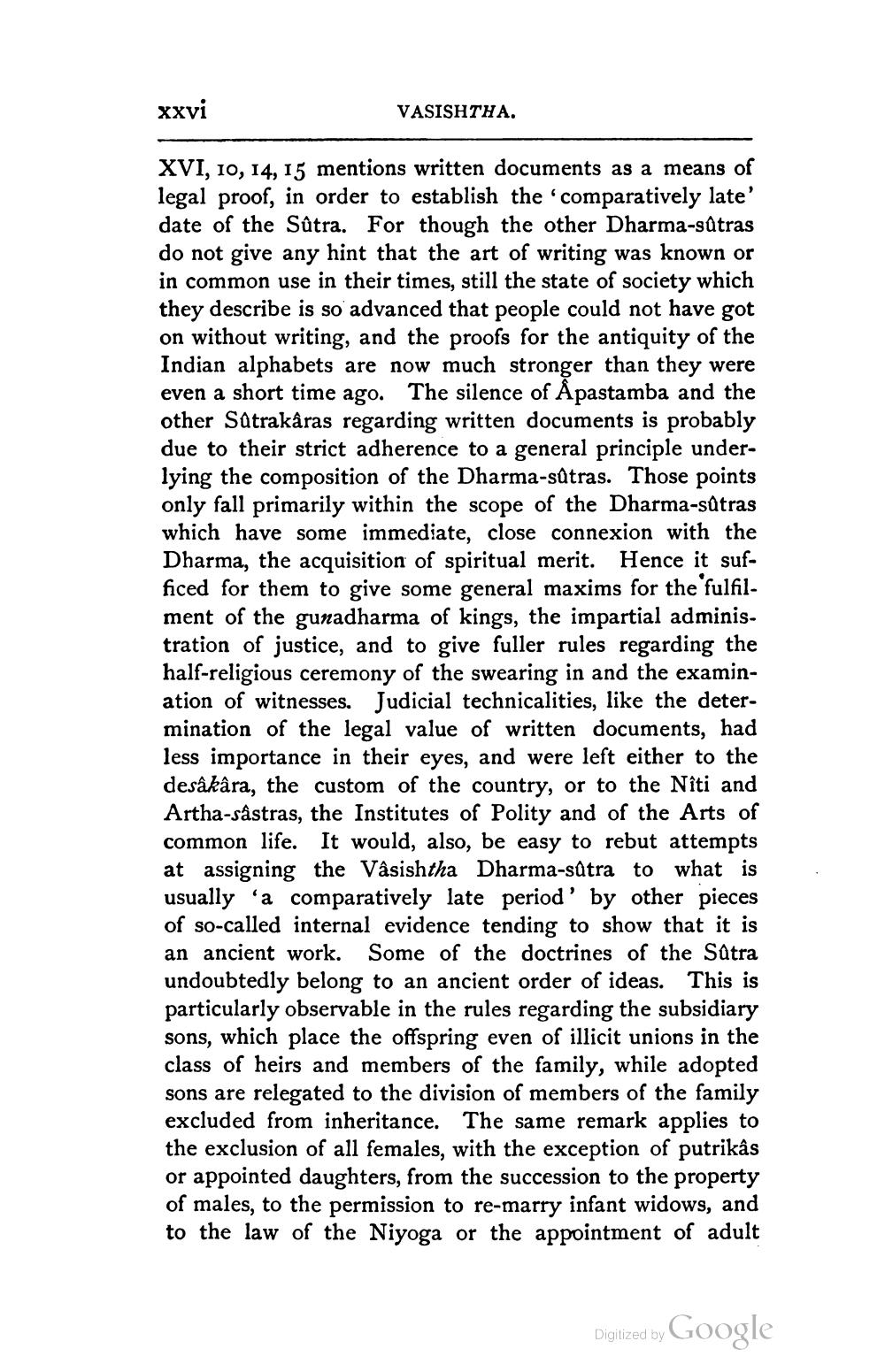________________
xxvi
VASISHTHA.
XVI, 10, 14, 15 mentions written documents as a means of legal proof, in order to establish the comparatively late' date of the Sûtra. For though the other Dharma-sůtras do not give any hint that the art of writing was known or in common use in their times, still the state of society which they describe is so advanced that people could not have got on without writing, and the proofs for the antiquity of the Indian alphabets are now much stronger than they were even a short time ago. The silence of Åpastamba and the other Satrakâras regarding written documents is probably due to their strict adherence to a general principle underlying the composition of the Dharma-sútras. Those points only fall primarily within the scope of the Dharma-sútras which have some immediate, close connexion with the Dharma, the acquisition of spiritual merit. Hence it sufficed for them to give some general maxims for the fulfilment of the gunadharma of kings, the impartial administration of justice, and to give fuller rules regarding the half-religious ceremony of the swearing in and the examination of witnesses. Judicial technicalities, like the determination of the legal value of written documents, had less importance in their eyes, and were left either to the desâkâra, the custom of the country, or to the Nîti and Artha-såstras, the Institutes of Polity and of the Arts of common life. It would, also, be easy to rebut attempts at assigning the Vâsishtha Dharma-sâtra to what is usually 'a comparatively late period' by other pieces of so-called internal evidence tending to show that it is an ancient work. Some of the doctrines of the Sätra undoubtedly belong to an ancient order of ideas. This is particularly observable in the rules regarding the subsidiary sons, which place the offspring even of illicit unions in the class of heirs and members of the family, while adopted sons are relegated to the division of members of the family excluded from inheritance. The same remark applies to the exclusion of all females, with the exception of putrikâs or appointed daughters, from the succession to the property of males, to the permission to re-marry infant widows, and to the law of the Niyoga or the appointment of adult
Digitized by Google




